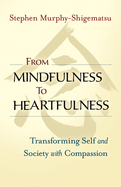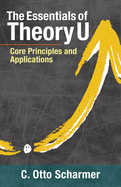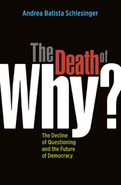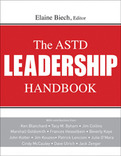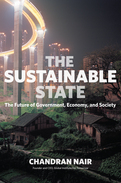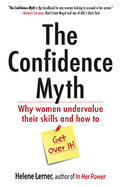Millions have found mindfulness to be a powerful practice for reducing stress, enhancing attention, and instilling tranquility. But it can offer so much more—it can transform you, make you more fully awake, alive, and aware of your connection to all beings. In Japanese, the character that best expresses mindfulness, 念, consists of two parts—the top part, 今, meaning “now,” and the bottom part, 心, meaning “heart.” Using stories from his own life as the son of an Irish father and a Japanese mother, a professor in Japan and America, a psychotherapist, a father, and a husband, Stephen Murphy-Shigematsu describes eight “heartfulness” principles that help us realize that the deepest expression of an enlightened mind is found in our relation to others.
This book offers a concise, accessible guide to the key concepts and applications in Otto Scharmer's classic Theory U. Scharmer argues that our capacity to pay attention coshapes the world. What prevents us from attending to situations more effectively is that we aren't fully aware of that interior condition from which our attention and actions originate. Scharmer calls this lack of awareness our blind spot. He illuminates the blind spot in leadership today and offers hands-on methods to help change makers overcome it through the process, principles, and practices of Theory U. And he outlines a framework for updating the “operating systems” of our educational institutions, our economies, and our democracies. This book enables leaders and organizations in all industries and sectors to shift awareness, connect with the highest future possibilities, and strengthen the capacity to co-shape the future.
2009
But the situation isn't hopeless. Schlesinger profiles individuals and institutions renewing the practice of inquiry—particularly in America's youth—at a time when our society demands such activity from us all. Our resilience will depend on our ability to struggle with what we don't know, to live and think outside comfortable bubbles of sameness, and, ultimately, to ask questions.
• Argues passionately for the critical importance of inquiry to a healthy democracy
• Shows how the very institutions that should be encouraging inquiry—schools, the media, government, the Internet—are actually discouraging it
• Highlights hopeful examples of people working to restore inquiry to its rightful place of importance
The spirit of inquiry is the engine of democracy. The democratic process is nothing less than citizens regularly asking what kind of society they want to live in and whom they want to lead them. But more and more people are avoiding the whole messy business of questioning. Americans are instead being trained to look for ready-made answers, with potentially dire implications for the health of our society.
In this impassioned new book, Andrea Batista Schlesinger argues that we’re besieged by cultural forces that urge us to avoid independent thought and critical analysis. The media reduces politics to a spectator sport, focusing on polls and personalities rather than issues and ideas. Schools teach to standardized tests—students learn to fill in the bubbles, not open their minds. “Financial literacy” courses have replaced civics classes, graduating smart shoppers rather than informed citizens. Even the Internet promotes habits that discourage inquiry.
Regurgitating search-engine results becomes a substitute for genuine research and reflection. Social networks promote connection rather than engagement. With all the information available online, over a third of those younger than twenty-five say they get no news on a typical day, up from 25 percent in 1998.
The situation isn’t hopeless. Batista Schlesinger spotlights individuals and institutions across the country that are working to renew a healthy sense of curiosity and skepticism, particularly in American’s youth. It is, at this point, an uphill battle but one well worth undertaking. The Death of “Why?” offers both a penetrating socio-cultural critique of our current path and a way forward for cultivating inquiry and reinvigorating our democracy.
Provides a complete overview and practical strategies on a full range of leadership topics.
Featuring a who's who of leadership gurus, The ASTD Leadership Handbook is an exciting compilation of insights, ideas, and tools that will enable individuals, teams, and organizations to fully develop their leadership capabilities. It provides a complete overview of leadership and covers a full range of topics, including competencies, development, attributes, and current challenges, taking a broad view of what leadership means. Editor Elaine Biech and her team worked to carefully match up topics with the leading authorities: William Byham on leadership development, Ken Blanchard on ethics, Bill George on authenticity, John Kotter on leading change, Marshall Goldsmith on coaching, Dave Ulrich and Norm Smallwood on getting results, Patrick Lencioni on teams, Leongard Goodstein on strategic planning, Frances Hesselbein on leading the workforce of the future, and many more.
The ASTD Leadership Handbook's five sections -- Leadership Competencies, Leadership Development, Characteristics of Successful Leaders, Contemporary Leadership, and the Global Role of Leadership -- cover all the major leadership areas. Chapters are written from a practical perspective, enabling readers to immediately put the wisdom and experience of the authors to use in their own lives and organizations. The book also includes three dozen tools to help you apply the concepts, such as John Kotter's Eight-Step Change Model, Bill Gentry's Checklist for Avoiding Leader Derailment, Marshall Goldsmith's Mini Coaching Survey, Beverly Kaye and Sharon Jordan-Evan's Jerk Checklist, and Leonard Goodstein's Applied Strategic Planning Model. These tools are available as free downloads on the book's accompanying website.
This handbook sets itself apart in a crowded field by emphasizing leadership development and providing practical approaches to address this crucial need. When you pick up The ASTD Leadership Handbook you hold amost 2,000 years of experience in your hands. This will surely be the definitive leadership resource for many years to come.
Selected chapters from The ASTD Leadershipp Handbook are also available for sale in PDF format: Leadership Whitepapers.
-
Provides a complete overview and practical strategies on a full range of leadership topics
-
Contributors include more than forty-five renowned experts in the leadership field
-
Includes more than sixty activities, tools, and assessments for application of principles and concepts
In this sure to be controversial book, Chandran Nair shows that the market-dominated model followed by the industrialized west is simply not scalable. The United States alone, with less than five percent of the world's population, consumes nearly a quarter of its resources. If countries in Asia, where 60% of the world's population lives, try to follow the Western lead, the results will be calamitous. .
Instead, Nair argues that development must be directed by a state that is willing and able to intervene in the economy . Corporations, which by design demand ever-expanding consumption, need to be directed towards meeting societal needs or otherwise restrained, not unleashed. Development has to be oriented towards the greatest good—clean drinking water for the many has to take precedence over swimming pools for the few. He provides three compelling case studies demonstrating the benefits of such strong state governance and the findings of weak state governance.
This will mean rethinking the meaning of concepts like “prosperity,” “freedom,” and “rights,” and whether democracy is always the best way to ensure responsive government—as Nair writes, “A democracy that cannot work to improve the life of its citizens is not better than a non-democracy that can actually improve quality of life.” Many people will find these to be challenging ideas, but what Nair offers is a model suited to the realities of the developing world, not the assumptions of the dominant culture.
2015
True confidence isn't fearlessness; it's having the courage to jump in even when your knees are shaking. Any woman who waits until she feels 100 percent confident before offering a big idea or asking for a raise or promotion will never get anywhere. Drawing on her own and other female leaders' experiences, as well as on her survey of over 500 working women, Lerner lays out practical strategies for beating this confidence myth and overcoming obstacles like gender bias. The book features dozens of Confidence Sparks, simple but powerful exercises and techniques that can catapult anyone's career to the next level.


